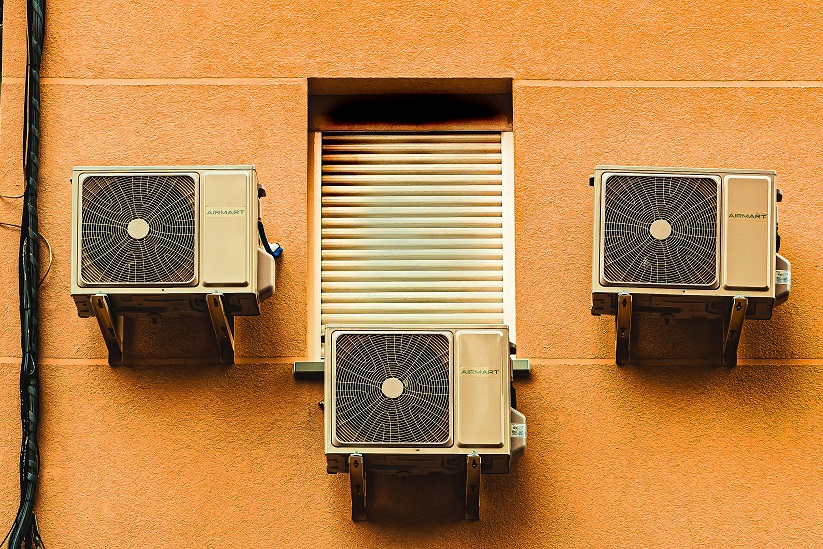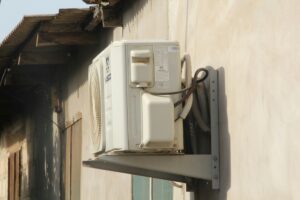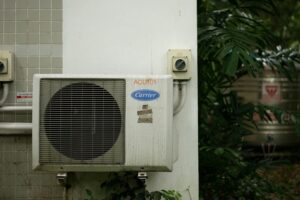So you made up your mind to get an air conditioner, you may even have picked the system you want to get installed. However, there is one more choice to make. Now you need to choose the air conditioner location in your home.
Where to place your air conditioner is an important decision for two main reasons. One, you need it to be positioned so your room reaches a comfortable temperature as quickly as possible. Two, you need the best place for your AC unit where it can maximise its cooling or heating functions while also being energy efficient.
Where to install air conditioning in your home
The first thing to think about when installing air conditioning, is which areas of your home you want to cool. This may depend on the size of your house, your family, your lifestyle and your budget.
Single-split system – one indoor AC unit
A single-split air conditioner consists of one outdoor unit connected to one indoor unit. One air conditioner may be all you need if you live in a smaller home, such as a two-bedroom apartment. Installing an AC unit in the main living area where the family spend most of their time may achieve the temperature results you want. Alternatively, if you are away from the house all day and are only home in the evenings, you might only want to install an air conditioner in your bedroom, so that you can have a good, comfortable night’s sleep. (link to DAI22_02 a good night’s sleep blog)
Ultimately, if you are only planning on one air conditioner, then putting it either in the largest room or the place where you spend the most time would be the best spot.
Multi-split system – up to 5 indoor AC units
If you have a larger home, or a bigger family, then you may need to think about having more air conditioning units to keep the temperature comfortable throughout the house. If this is the case, then the best option is to consider a multi-split system. The benefit of this, as opposed to multiple single AC units, is that you can have up to five indoor air conditioners connected to just one outdoor unit. This one compact unit fits small spaces such as roofs or terraces and can even be installed on a wall.
Having multiple ACs means you can prioritise where they are positioned around the house, putting them in the most convenient areas according to your personal circumstances and requirements.
Once you have decided whether you are looking for a single or a multi split system, it’s time to think about the specific air conditioner location in your room.
There are a few factors to consider when choosing a place for your air conditioner and your installation expert will advise you on this, however it is always good to do your homework in advance so you are prepared with any questions. Ultimately the final placement needs to be agreed by the installer as they need to factor in the design of your home and the piping and construction requirements for your new AC unit.
5 things that influence your indoor air-conditioning unit’s location
When considering on an air conditioner location, the main goal is always to position it so that you get the maximum cooling/heating effect and the most efficient use of electricity. Anything that causes the air conditioner to work harder will mean it is using more energy to achieve the same results and this can reduce its lifespan.
1. The placement needs to ensure that the unit is easily accessible for cleaning the filters and any other maintenance.
2. Air conditioners rely on a good flow of air, so make sure there will be plenty of space around it in a well-ventilated area. This means making sure no furniture, curtains or any other items are blocking the air circulation.
3, Any natural airflow should work with the air conditioner not against it, so don’t position it opposite a door or window. These can create opposing airflows that make the unit work harder.
4. Your air conditioner needs to be away from any heat sources. This includes refrigerators and electronic equipment. Anything that generates heat may be detected by the sensors of the air conditioner, causing it to continue running unnecessarily. This results in a needless use of energy and your room could end up far colder than you intended.
5. Your air conditioner should never be in direct sunlight. The higher heat from the sun causes the AC to work harder to produce the cooling effect needed. The unit could end up overheating and over time, the extra work could lead to mechanical problems.
4 things that influence your outdoor unit’s location
When thinking installing an air conditioner, it can be easy to overlook the outdoor unit. However, this is just as important for achieving optimal efficiency from your air conditioning system.
1. As with the indoor unit, airflow is important for your outdoor air conditioning unit. It needs to be placed in a safe, well-ventilated area with enough clearance to take in fresh air and release the heat from your home.
2. The location should be clear of trees, bushes, and excessively dusty areas where leaves and debris could block the unit or clog the filters.
3. The outdoor unit should be somewhere that it is easily accessible for cleaning and maintenance.
4. The outdoor unit shouldn’t be exposed to extended periods of direct sunlight. As with the indoor units, excessive heat from the sun will cause it to work harder, making it less efficient and putting extra stress on the unit.
Seek professional advice to discuss your air conditioner location
These are just some of the things to think about when considering the best placement of your air conditioner. However, there is no one best solution that fits all, which is why the final decision needs to be made with an expert air conditioner installer. As a specialist, they can give the best advice for the optimum performance of your air conditioning units, taking into account all the aspects mentioned above as well as the layout and construction of your home.
Text taken from: https://www.daikin-ce.com






